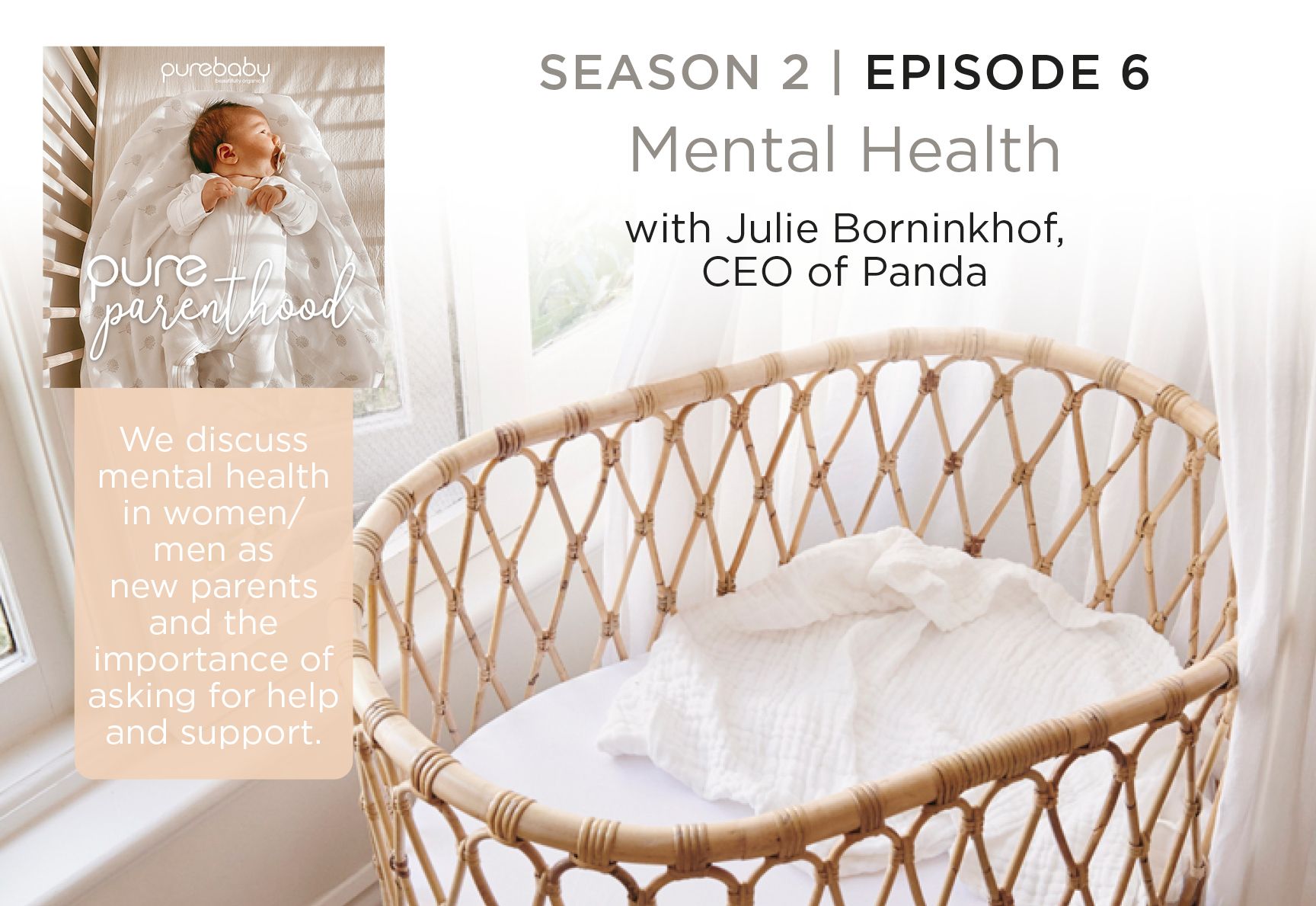
Newborn Baby Clothing Checklist
10 min read | 1 September 2023
New In
Essentials
Clothing
Accessories
Shop By Gender
Shop By Size
Collections
Baby
Clothing
Accessories
Shop By Gender
Shop By Size
Collections
Nursery
Care
Play
Kids
Clothing
Accessories
Shop By Gender
Shop By Size
Collections
Care
Play
Gifts
Baby Gifting
Kids Gifting
Shop By Price
Shop By Event
Shop By Gender
Sale
Sale
Shop By Gender
Learn
Education
Resources
Pre-Loved
Rewards
7 min read | 05 April 2021

Perinatal mental illnesses such as anxiety and depression are common health issues however, they can be hard to recognise, difficult to discuss and for many, it is hard to seek help. Mental illness can have serious and long-lasting effects, and can be experienced by the person carrying the baby and/or their partner. It can also occur with any baby – not just for first-time families.
Community expectations and stigma can make it difficult for expecting parents to acknowledge that they are struggling with their pregnancy and seek the support they need. However, we know that getting help early is critical for both the parents, the baby and the whole family.
Many parents with perinatal anxiety and depression can feel overwhelmed, confused, isolated and ashamed about how they’re feeling. It is important to remember that these thoughts are common and that help is available.
The key to getting help is being able to recognise that something is wrong and being brave enough to ask for help. That might be talking to your partner, child and family health nurse, doctor or PANDA’s National Helpline. With the right support and early intervention, most women and men make a full recovery from perinatal anxiety and depression.
Constant sadness or crying
Panic attacks
Persistent and generalised worry
Sleep problems unrelated to the baby’s needs
Lethargy
Loss of confidence and self-esteem
Withdrawal from friends and family
If these symptoms are persistent and negatively affect an expecting or new parent’s ability to live a normal life, then it might be time for them to seek professional support.
Perinatal mental illness does not discriminate – it can happen to any new, expecting or existing parent, regardless of their culture, background, sexual orientation, socio-economic status or gender. There is still a great deal of stigma around perinatal mental illness, and many of those affected feel isolated and ashamed about their feelings. In fact, the stigma around mental illness often causes new and expecting parents who are experiencing difficulties to delay seeking help. We know that early intervention is the key to addressing perinatal mental illness. The sooner those who are affected seek help, the sooner they can recover.
Left untreated, however, perinatal mental illness can leave women, their baby and their families vulnerable to a wide range of negative and lasting consequences. It can have a negative impact on nearly every area of life, including:
Pressure in parenting when there should be joy
Difficulties connecting with the baby
Relationship difficulties and breakdown
Parentification of older children
Suicide and/or infanticide
Increased risk of their partner experiencing perinatal mental illness.
The pregnancy and the first year after birth is a crucial time of development for the baby. Improving mum and dad's wellbeing is equally important for both parents and the baby.
PANDA has a range of expert and accessible resources for expecting and new parents to understand their feelings and to know where they can seek support, and also for health professionals who support the mental health of expecting and new parents.
PANDA operates two websites with crucial information and advice for expecting and new parents, including a free online Mental Health Checklist for those concerned about their mental health and a support network for dads.
PANDA’s Mental Health Checklist for Expecting and New Parents is a free tool that can help give concerned expecting and new parents an indication of whether what they are feeling and experiencing could be a reason to seek help.
The checklist asks questions about a parent's experiences since learning they are pregnant, including their thoughts, feelings, behaviours, and relationships. The Results page can also be taken to appointments with care providers as a way to start conversations about how they’ve been feeling. Parents can also opt to send their results directly to PANDA and request a callback. For more resources, check out the free resources for new parents from PANDA now
This article was written with PANDA (Perinatal Anxiety & Depression Australia), in conjunction with Season two, episode 6 of Purebaby’s podcast, Pure Parenthood.
To learn more about PANDA, visit their website or Instagram.
Sign up to Pure Love Rewards and get $10 off your first online order, earn points every time you shop and more!